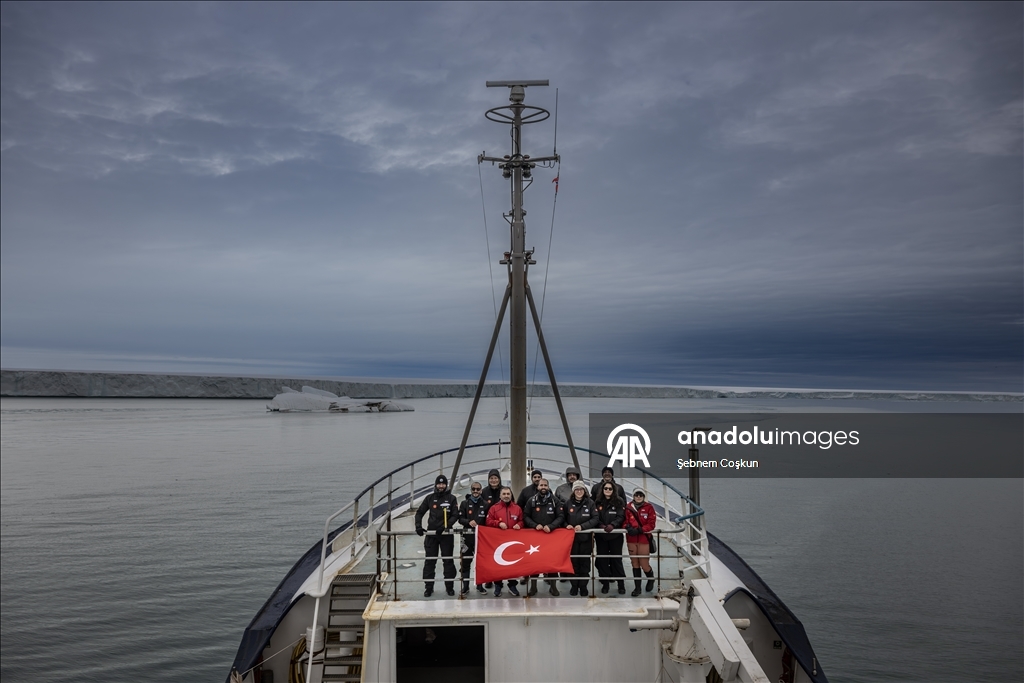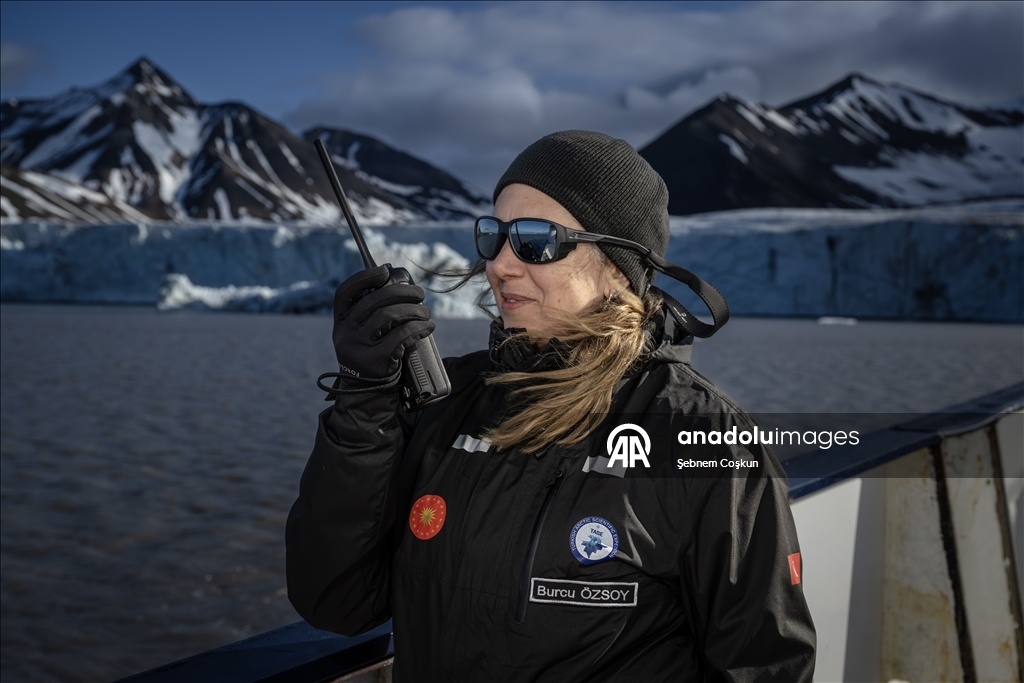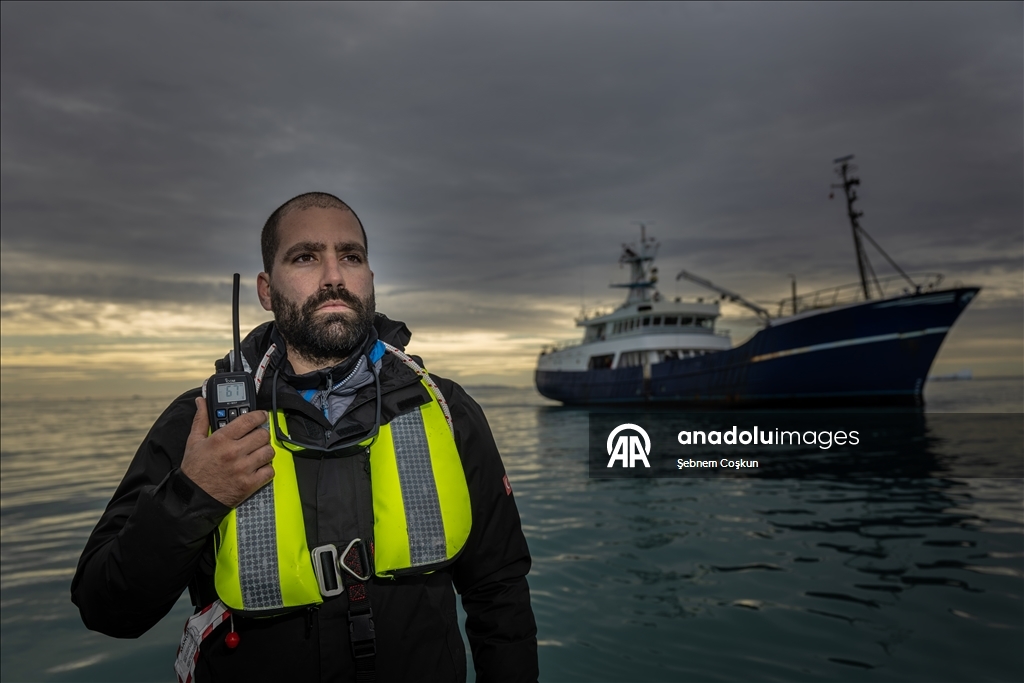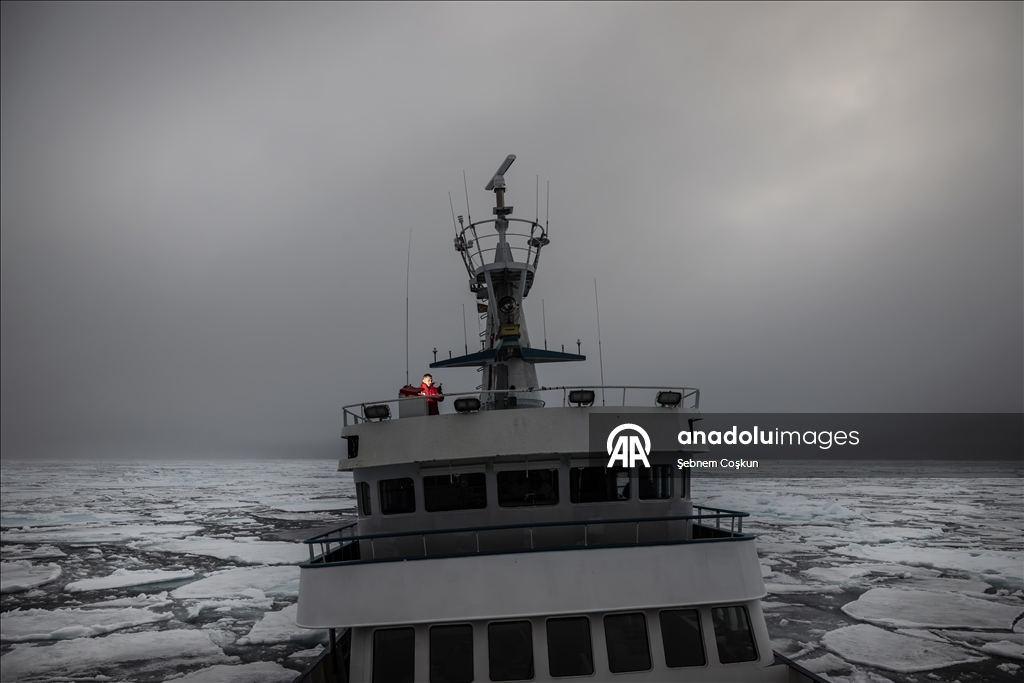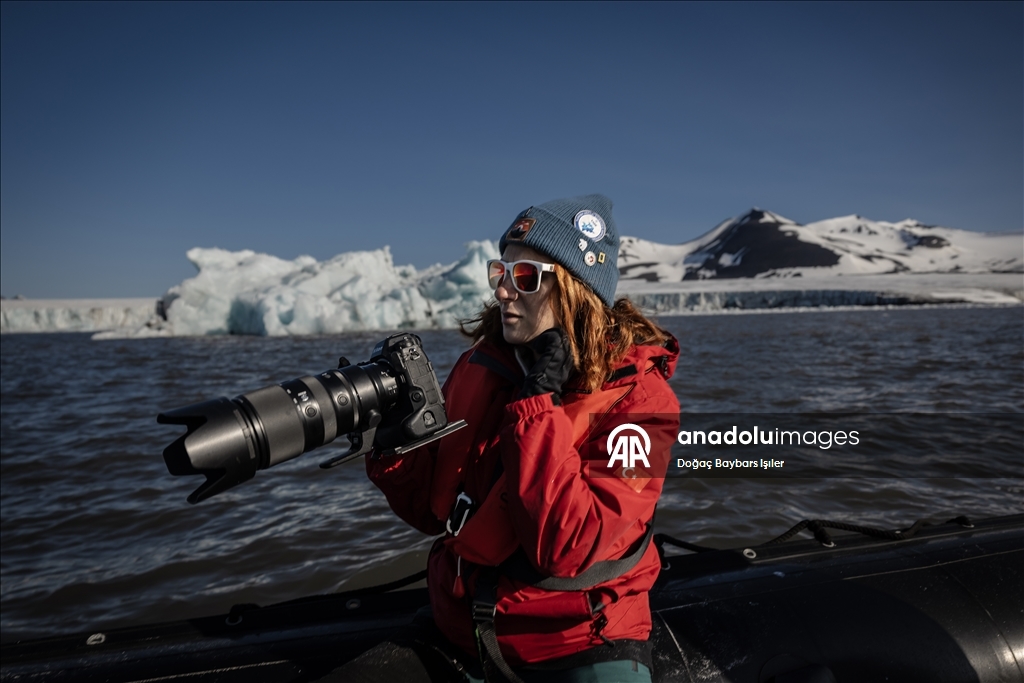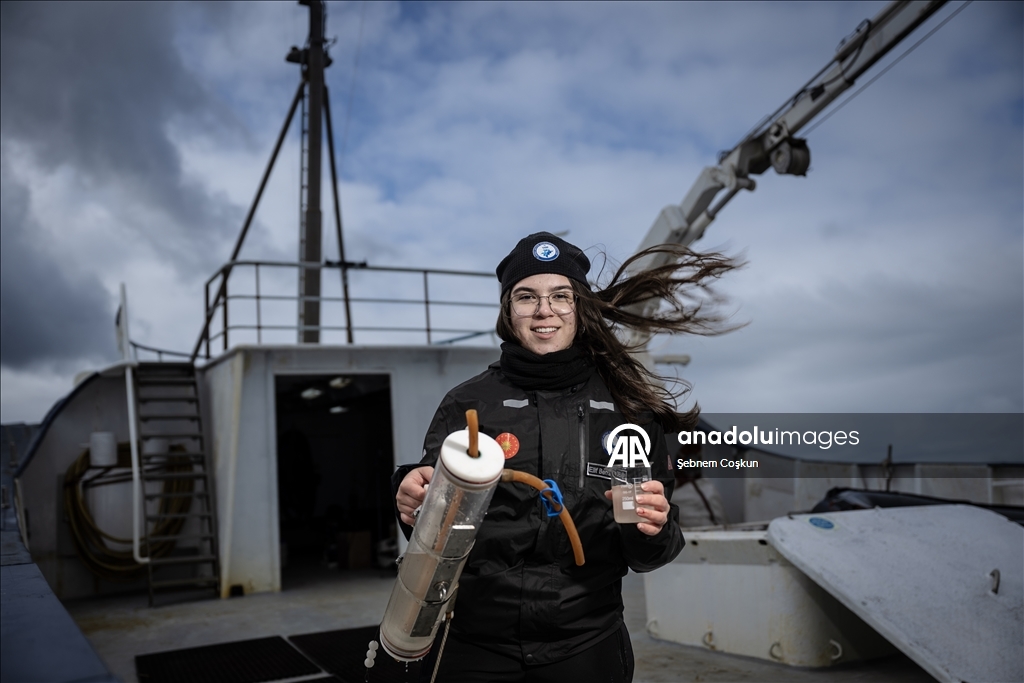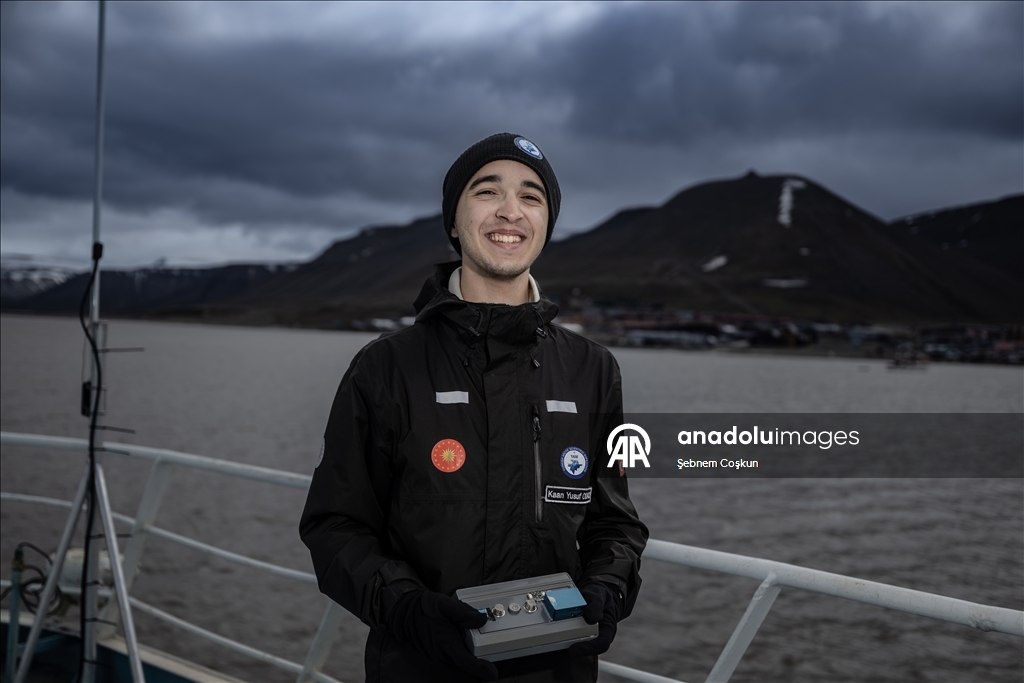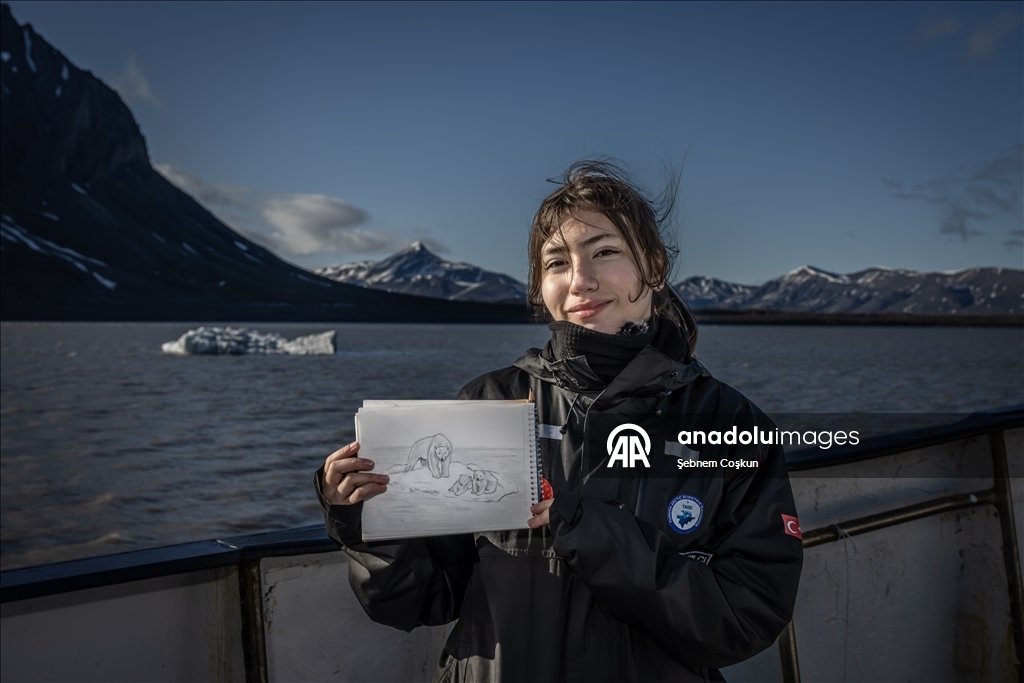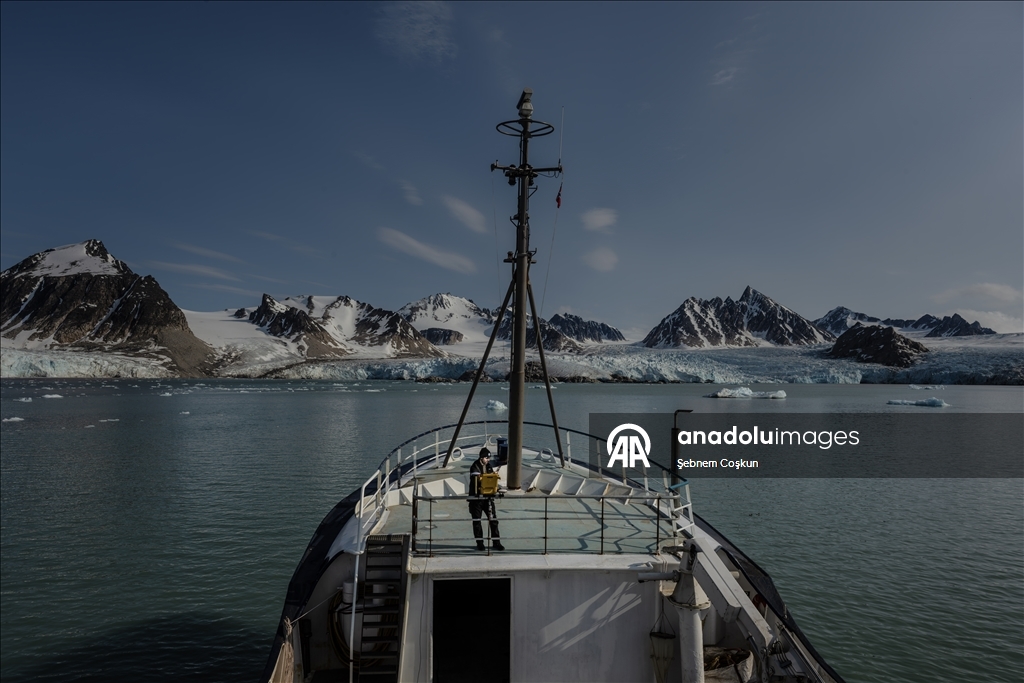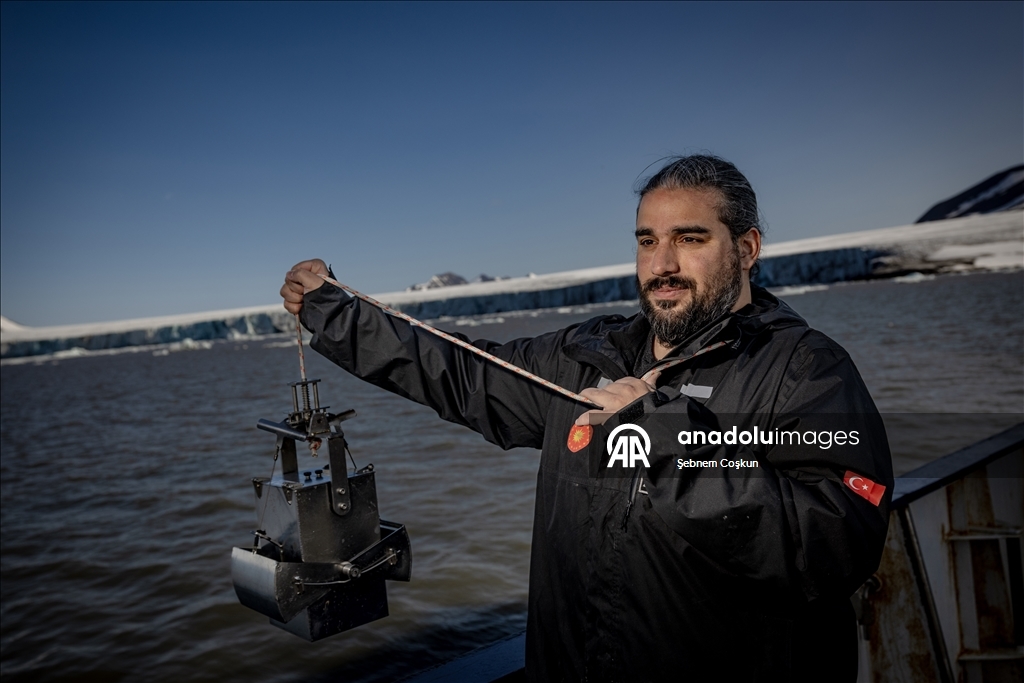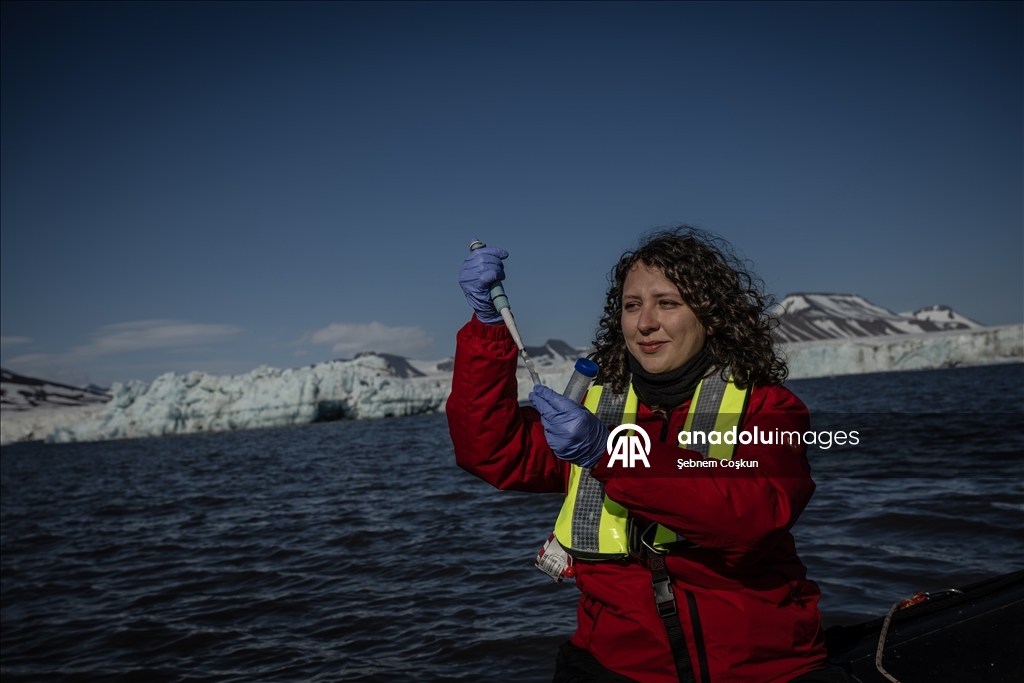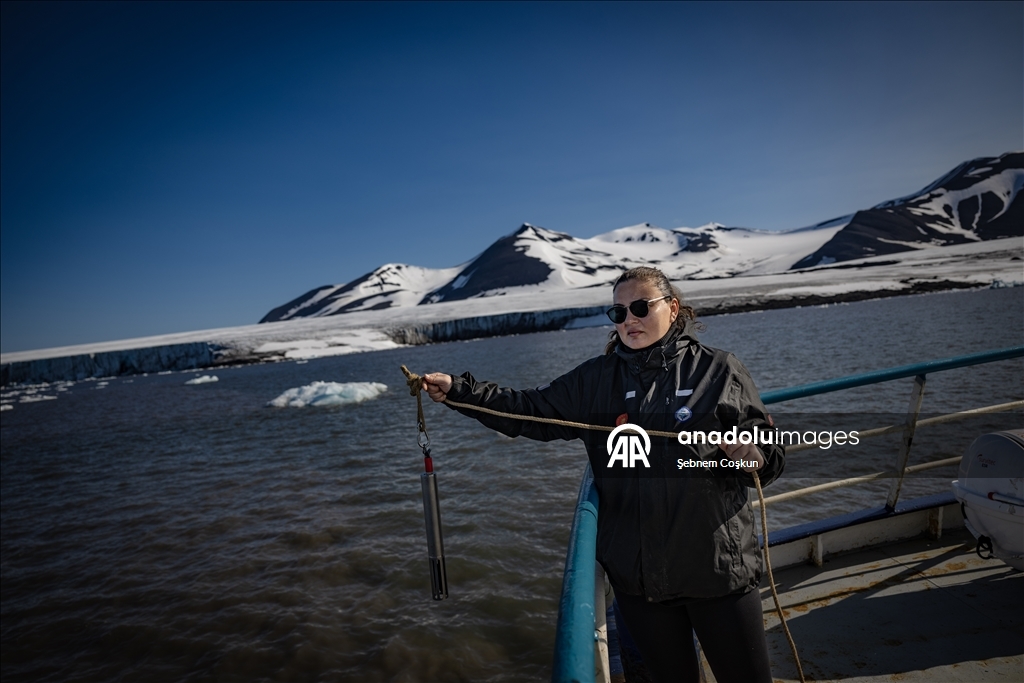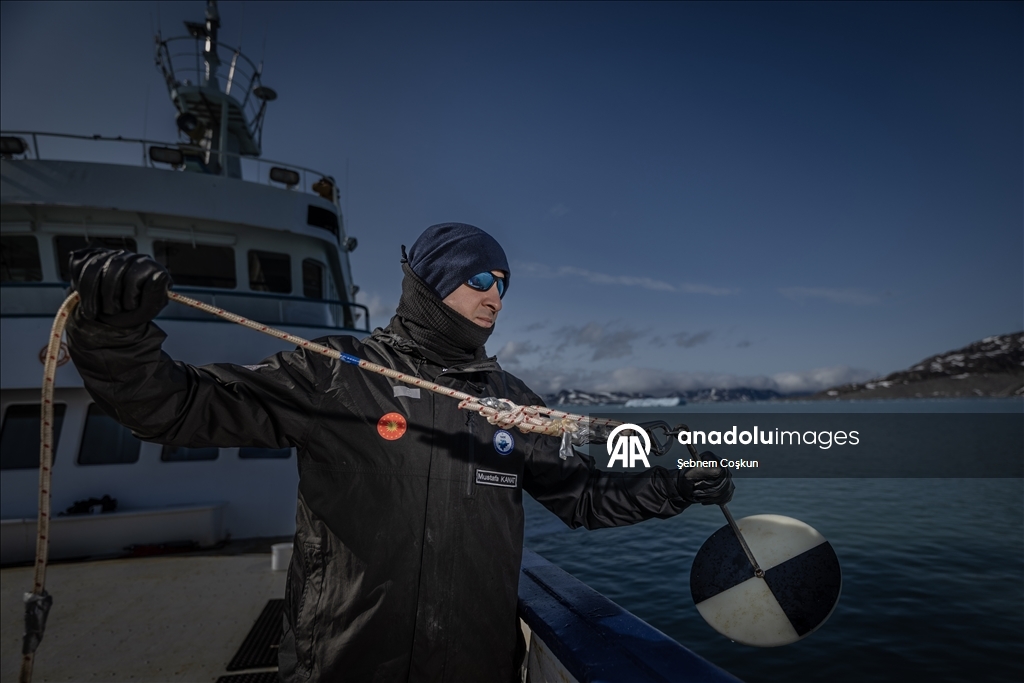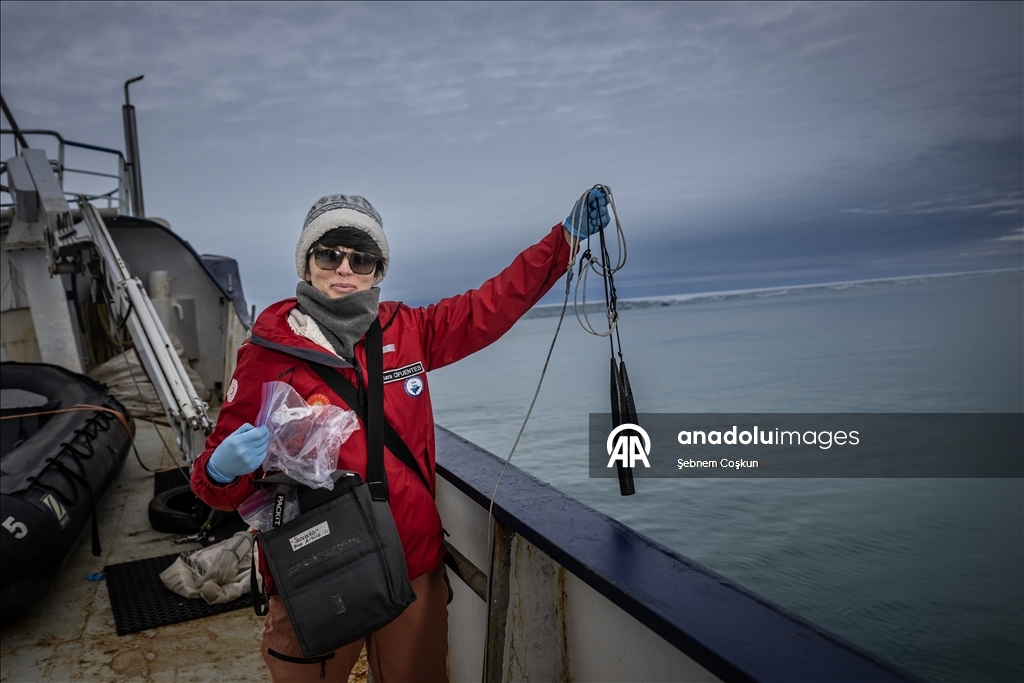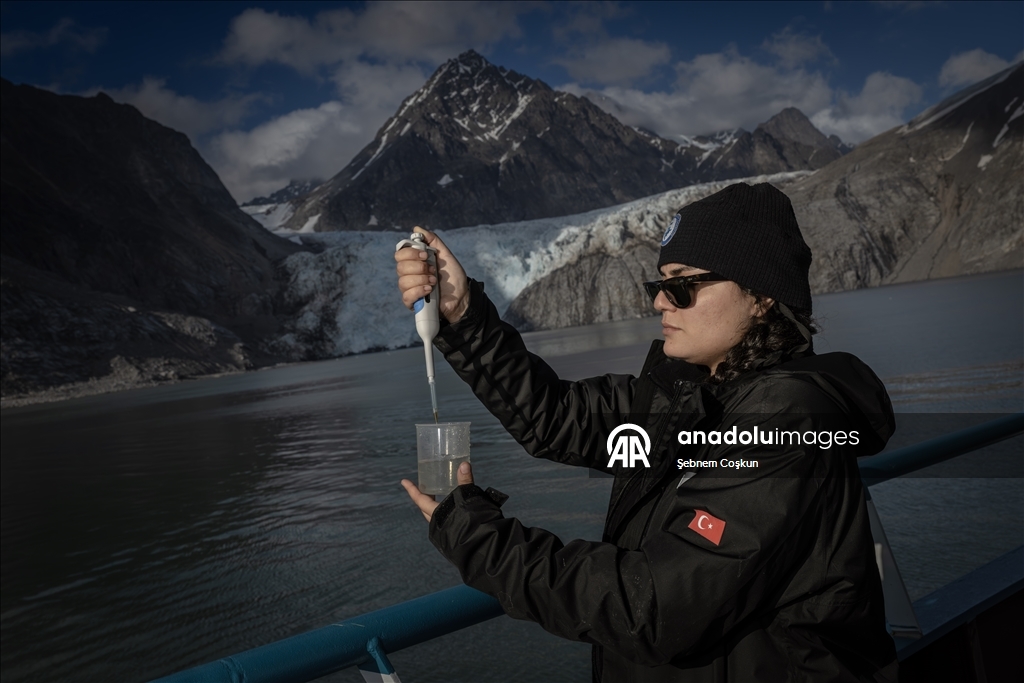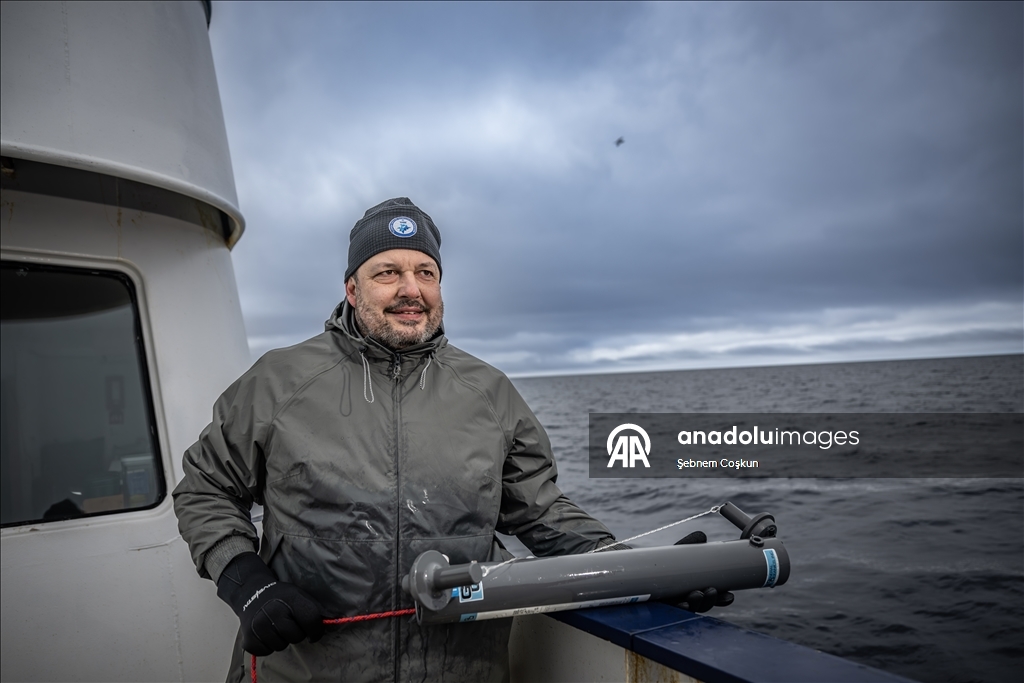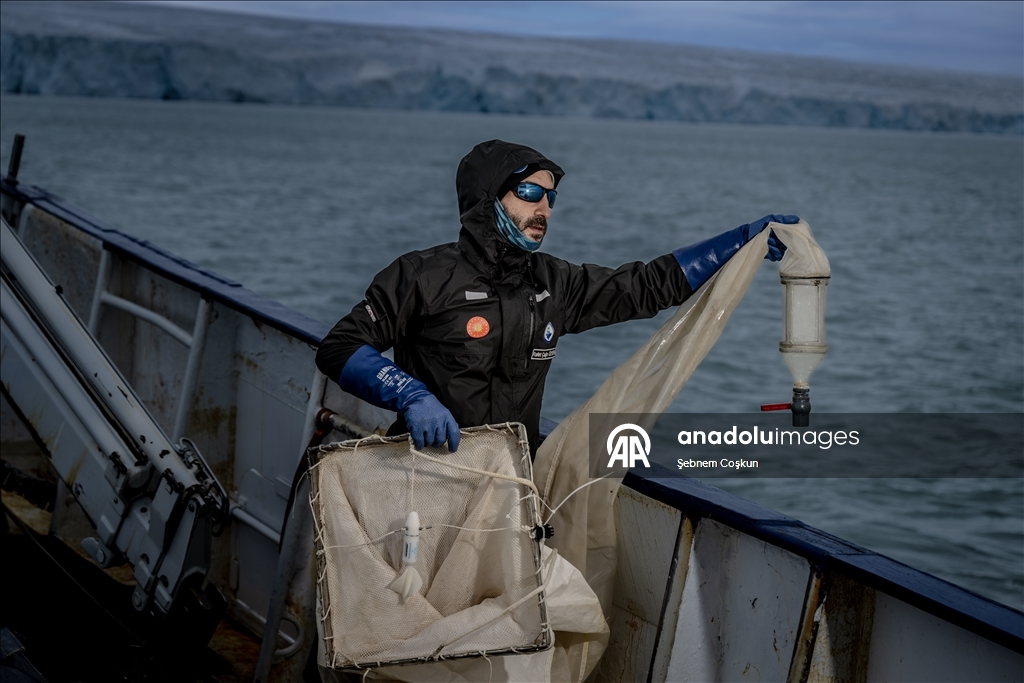SVALBARD, Norway
Türkiye is leading its fifth scientific research expedition to the Arctic to seek answers concerning the planet's future through 19 projects to be carried out in the region's marine environment.
The scientific research team, led by Türkiye’s Presidency, includes participants from the Scientific and Technological Research Institution (Tubitak), the Directorate of Navigation, Hydrography, and Oceanography (SHOD), the Anadolu news agency, and various Istanbul-, Ankara-, and Izmir-based universities, as well as three guest researchers from Bulgaria, Argentina, and Ecuador.
Burcu Ozsoy, scientist and coordinator of the expedition, told Anadolu that nine Turkish and three foreign nationals participated in this year’s expedition to work on 19 projects.
“We have already taken the Global Navigation Satellite System (GNSS) and meteorological readings of the 3,000-mile radius around the Svalbard Island (Norwegian archipelago between mainland Norway and the North Pole) as a part of the marine sciences studies to be conducted here,” she said.
“The impact of the sea ice melting on the marine ecosystem will be revealed via the seawater and sediment samples collected from some 70 stations, while the meteorological readings will contribute to our knowledge,” she noted. “All international publications to come from these analyses will contribute to Türkiye’s strength in the Arctic science field.”
Dogac Baybars Isiler, the expedition's captain and leader, told Anadolu that he contributed to 19 projects in the Arctic.
Erhan Arslan, the expedition's assistant leader, measured meteorological parameters during the Arctic expedition, while senior Anadolu photojournalist Sebnem Coskun shared photos, videos, and reports from the region to highlight Türkiye’s scientific expedition to the Arctic region.
Lieutenant Mustafa Kanat from the SHOD participated in the expedition to take oceanographic measurements of the Arctic region to determine where in the Arctic is suitable to collect satellite-based bathymetric readings and the unique oceanographic conditions of the region.
Adil Enis Arslan from Istanbul Technical University researched water vapor dynamics in the Arctic region via GNSS readings to find out the relationship between the atmosphere and the amount of vaporizable water using GNSS signals, while Aslihan Nasif from Izmir-based Dokuz Eylul University monitored physical oceanographic parameters to determine the changing trends in the Arctic Ocean in terms of climate change.
Rafet Cagri Ozturk—a researcher from Karadeniz Technical University based in the northwestern province of Trabzon—worked on a project to determine if marine mammals in the Barents Sea can be detected using the environmental DNA (eDNA) method, while PhD candidate Bilge Durgut from the Middle East Technical University researched the changes, whatever, in the Arctic ecosystems due to climate change using eDNA on an annual basis.
Guldehan Deryal, a PhD candidate from Istanbul University, researched advanced enrichment methods to determine pharmaceutical active ingredients absorbed into microplastics using the Fourier Transform infrared (FT-IR) spectroscopy and the liquid chromatography–mass spectrometry (LC/MS) techniques in a bid to determine how the microplastics were distributed across the Arctic ecosystem and how the organic pollutants are.
Meanwhile, three high schoolers—finalists in Tubitak’s research projects—also participated in the expedition to test their projects in air and climate, sustainability, and social and human sciences in the North Pole.
As for the foreign guest researchers, Sara Cifuentes—a postdoctoral researcher from Ecuador-based Universidad San Francisco de Quito—took part in Türkiye’s fifth expedition to the Arctic to study characterized marine microbiota and resistance genomes to find out the differences between human-impacted and remote coastal regions of Svalbard and the microbiota and resistance genomes (resistomes).
Lucas Martinez Alvarez, a researcher from the Argentine Antarctic Institute (IAA), participated in the expedition to investigate the common evolutionary adaptations between Arctic and Antarctic microbial communities.
Svetoslav Dimov, an associate professor from the Bulgarian Antarctic Institute, also joined up on Türkiye’s fifth Arctic scientific expedition to investigate Arctic seawater microbiota around the Svalbard Archipelago to find out what microorganisms do in the energy flow of Arctic marine ecosystems and the human-induced impacts on these ecosystems.
